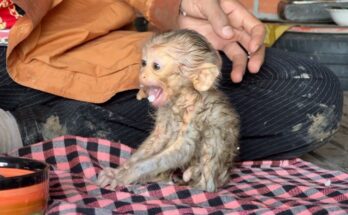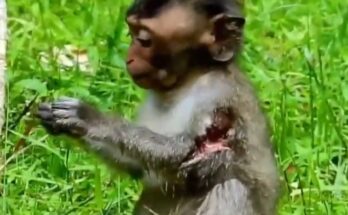Deep in the rugged terrain of northern Tanzania, the Hadzabe tribe continues to live as one of the last true hunter-gatherer societies on Earth. Today, a group of young Hadzabe boys successfully hunted a wild baboon monkey — a rare but valuable catch that will serve as an important meal for the community.
Before sunrise, the boys set out armed with traditional handmade bows and poison-tipped arrows. Tracking skills are taught from a young age, and these boys, though youthful, are already seasoned hunters. After hours of silently moving through the bush and following subtle signs like broken branches and fresh droppings, they spotted a troop of baboons.
With quiet precision, the boys coordinated their positions and waited for the right moment. One well-aimed arrow struck a medium-sized baboon, which was then quickly pursued and retrieved. Baboons are not easy prey—they are intelligent, quick, and can be aggressive when cornered. This hunt required great skill, courage, and teamwork.
Back at the camp, the baboon is prepared over an open fire. The meat is carefully roasted, with nothing wasted. Among the Hadzabe, every part of the animal is respected and used — a practice deeply rooted in their sustainable way of life. Elders often supervise the cooking while sharing stories of past hunts, turning each meal into a lesson for the next generation.
To outsiders, the idea of eating monkey meat might seem unusual, but for the Hadzabe, it’s a matter of survival and tradition. Hunting provides essential protein and maintains cultural identity. For the boys, today’s catch is more than just lunch — it’s a rite of passage, a proud moment in their journey to adulthood, and a celebration of their connection to nature.


